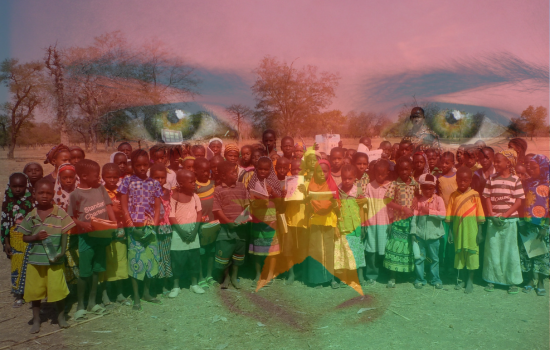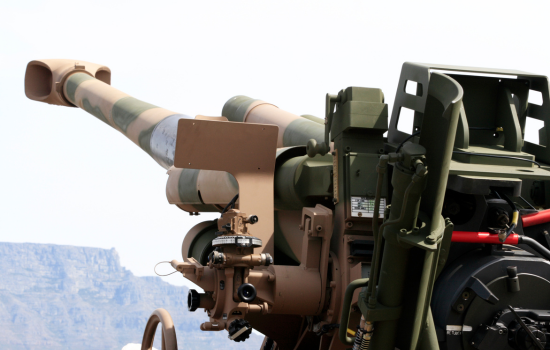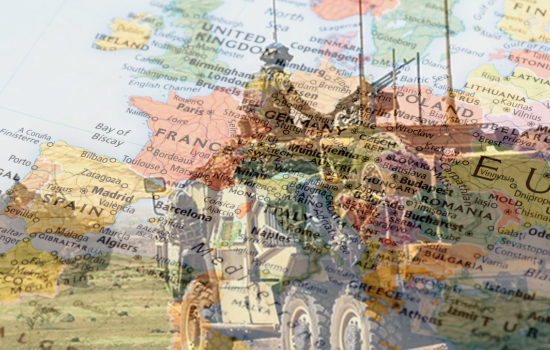The Flotillas to Gaza – New Actors in the Israeli-Palestinian Conflict
First published in Spanish in El Imparcial
In my presentations of the Israeli-Palestinian conflict I often explain that this is not merely a national or ethnic conflict between two beleaguered peoples on this tiny historical territory so often tainted with blood, but one in which from its inception a multitude of international actors with opposed strategic, political and economic motivations were deeply involved, a very complex international geopolitical issue. This is probably one of the main reasons this conflict has not been solved yet.
All the Arab countries, today 22 in number, not only supported unconditionally the Palestinians, promised them to wipe out the young Jewish state and thus convinced some of them to leave the land and become refugees, but when Egypt occupied Gaza and Jordan the West Bank for 20 years, until 1967, they did not give the Palestinians any autonomous status, let alone independence. Three times Arab countries attacked Israel (1948, 1967, and 1973) and eternized the Palestinian refugee problem for more than sixty years.
All the Muslim countries and most of the so-called “Non-Allied Movement” states supported the Palestinians.
The Great Powers had a huge role in the region, defending their vested interests: Great Britain as a colonial power; the United States and the Soviet Union, with their allies in the two enemy military pacts, supported either the Arabs or Israel; India and China, which for decades played only the Arab card for political and economic reasons.
Above all, the radical regimes in the region have always worked to derail any hope of peace, any successful negotiation, by supporting the Palestinian terrorism inside Israel and the territories or on the international arena: Egypt until the presidency of Sadat; Iraq until the fall of the Saddam regime; even the far away Libya and Sudan; Lebanon as a platform; Syria and Iran intensely and, it may be said, successfully, until these very days.
Who is trying to solve the Israeli-Palestinian problem today? The so-called Quartet, actually a team of discordant actors such as the U.S. and Russia, the European Union (but whose views prevail, France or Italy, Poland or the United Kingdom?); Egypt and Saudi Arabia, China and Japan are also involved, each with its reasons and interests. Will they be more successful or more united than the actors of the 1940s, 1960s or 1990s? I am skeptical!
During the last years new international actors have entered the arena, self-professed humanitarian or peace loving actors: to help the besieged Palestinians in Gaza and the West Bank, or to help bring peace in opposition to the reactionary right-wing forces leading the “Zionist state.” Their activities are more and more assertive, more aggressive and tend to delegitimize the very existence of Israel or its right to resist aggression by the Palestinians.
The Gaza bound flotillas, actually organized behind the scenes by the “peace loving” Hamas movement (the same movement which professes the destruction of Israel and took power in Gaza by a bloody military coup against the Palestinian Authority and its Fatah comrades-in-arms) represent since 2008 the epitome of this new phenomenon.
The 31 May 31 2010 flotilla, organized by the Free Gaza Movement, the International Solidarity Movement (coalitions of mainly European human rights activists and pro-Palestinian groups) and the Turkish Islamist Foundation for Human Rights and Freedoms and Humanitarian Relief (?HH), was carrying humanitarian aid and construction materials with the intention of breaking the Israeli-Egyptian blockade of the Gaza Strip.
Actually, under the leadership of the radical IHH elements it caused a violent clash with the Israeli navy, the death of nine Turkish citizens, the wounding of several Israeli soldiers and a major crisis between Turkey and Israel.
It is not my intention to analyze here the real personal or ideological background and interests of the members of The International Solidarity Movement (ISM), a “Palestinian-led movement committed to resisting the Israeli occupation of Palestinian land using nonviolent, direct-action methods and principles,” nor how radically Islamist or Jihadist are the Turkish IHH leaders and their links to the Turkish government.
The question I pose is why these humanitarian and peace loving activists are not engaged in any way, for instance, in supporting the violently repressed Iranian people after the falsified elections of 2009; or the Libyan and lately the Syrian killed by the hundreds and thousands these very days by their regimes. The IHH is indeed helping the Syrian refugees who preferred to flee to the Turkish territory, but did not send any flotilla to the Syrian Tartous or Latakia harbors.
Interestingly, the Spanish activists of the Rumbo a Gaza organizarion and the Irish of Irish Palestine Solidarity Campaign are among the most radical and vociferous in trying to delegitimize Israel, to boycott it or to put on trial its leaders and military.
As if the Basque problem and ETA terrorism has been solved, or Spain has not built fences on the African border of Ceuta and Melilla to prevent illegal immigration and smuggling.
As if the fences do not still divide the Protestant and Catholic neighborhoods of Belfast, where despite “peace agreements” since 1997 walls are growing in size and numbers, where children of different faiths cannot cross or learn on the other side, where bloody sectarian rioting escalated several weeks ago and dissident Irish republicans’ terrorist activities increased exponentially during the last two years.
It is of interest to shortly analyze the fiasco of the last July 2011 Gaza bound flotilla. The project involved 15 boats and ships but in the end only one small French yacht was stopped by the Israeli navy near Gaza.
The neutralization of this flotilla is considered a major diplomatic victory for Israel but it actually proves again how interests of regional players work.
The first signs of change appeared when the Turkish IHH, the leader of the flotilla coalition and the owner of the biggest ship, Mavi Marmara, the one involved in the last year incident, decided to postpone the operation after the 12 June elections for the Turkish Parliament and then was dissuaded by the Turkish AKP government, the great winner of the elections, to abandon completely the flotilla.
Then, the decisions of the Cyprus government to not permit the use of its ports by the flotilla and of the Greek government to do the same and even physically stop with its navy commandos some of the boats anchored in its waters did the rest.
These changes are direct results of the new strategic and political realities in the Middle East and the Mediterranean.
Greece and Cyprus have developed stronger strategic relations with Israel on the background of Turkey’s continuous Islamization process, the fear of its Ottoman ambitions and the lack of advance in the negotiations on the intricate issue of Turkish Cyprus.
The hypocrisy of the Turkish AKP government was evident for many analysts: it pretended to help the Palestinians achieve freedom from Israeli occupation but preferred to support the more radical Islamist uncompromising Hamas; it pretended to develop no-problems relations with neighboring countries but befriended the Assad repressive regime; it pretended to support democracy and human rights but was not able to solve its own major problem – the Kurdish issue.
The change in the behavior of Turkey’s AKP government is related to the regional instability provoked by the Arab uprisings, especially the violence by the Syrian regime against its Sunni population, the dire situation of the Assad friendly regime and the possibility that the Kurds in Turkey will be tempted to escalate the ethnic conflict to new heights.
Moreover, the AKP government is also very worried that the United Nations Investigation Commission on the May 2010 flotilla incident will find Turkey partly responsible for its bloody results.
It seems nevertheless that the new actors, the radical European and international NGOs and the Turkish present government will continue to intervene in the Palestinian-Israeli conflict according to their political interests, without taking in consideration the real interests of the local peoples and the peace prospects.
The NGOs’ promise to organize new flotillas and “operations” and Turkish Prime Minister Erdogan plans to visit Gaza, probably to try ‘breaking” the Israeli embargo.
What’s new in the Israeli-Palestinian conflict? More disturbing actors and no prospects of peace.






